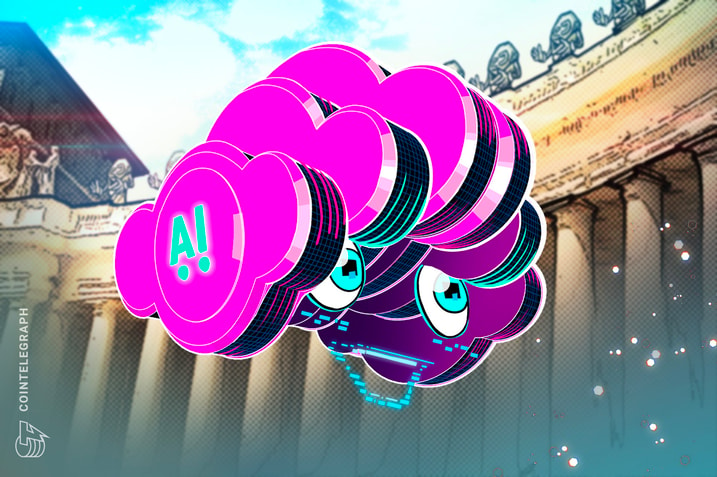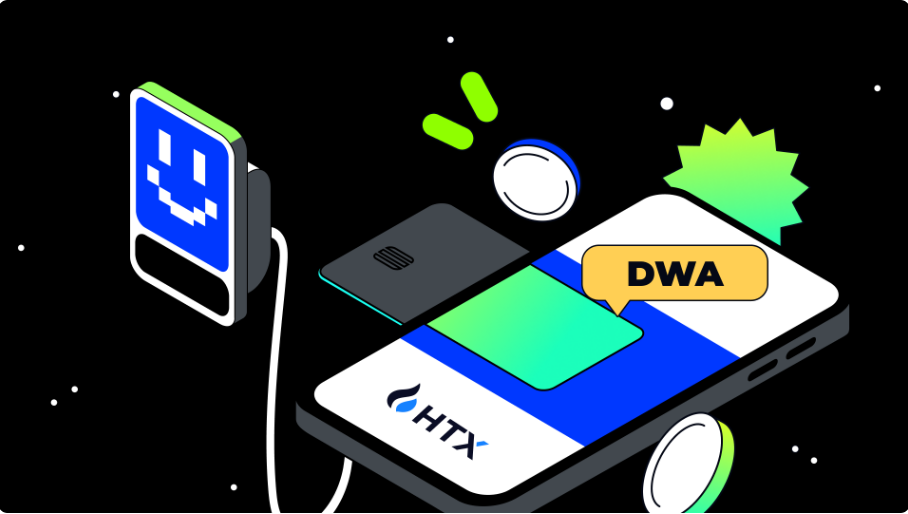Vatican expert calls AI "absolutely positive" as a product of human intelligence

Friar Paolo Benanti, the Vatican’s expert on AI, called the technology “absolutely positive” as the result of human intelligence, but warned over ethical implications without proper governance.

Friar Paolo Benanti, a monk of the Franciscan order, is the Vatican’s artificial intelligence (AI) expert and has called the technology “absolutely positive” as a product of human intelligence and ability, but it is not without ethical concerns.
According to a report from the AP on Jan. 18, the monk said that although he is a big believer in AI, he simultaneously believes government regulations based on “ethical considerations” should go hand-in-hand with the development of the technology.
“I have a deep understanding that there is no neutral technology because any tool could become a weapon.”
Benanti has a background in engineering with a doctorate in moral theology. He says his passion is on the “ethics of technology,’’ and is an advisor to the Pope on the topic, who released a 3,400-word letter on Dec. 15 warning of the dangers of the technology.
The Vatican AI expert is also a member of the United Nations Advisory Body on Artificial Intelligence and a leader of an AI commission advising the Italian government.
Related: The ultimate 2023 AI guide: Here’s what happened and why
His main concerns about the ethical implications of AI arise not from people using it, but from governance over the technology and the “right level of use” in a social context.
“Today this technology could corrode our social ties, our ability to live together as a species. So there is a need for proper governance – and here the answer is entirely ethical and entrusted to national and international relations between states.”
In his annual peace message for 2024, he urged world leaders to create and uphold an international treaty that would ensure the ethical use of AI technology.
Benanti says that AI, for example, could be a “really powerful tool” to bring down costs of medicine and further the reach of doctors, however, he cautioned over choosing data that isn’t “sufficiently inclusive” of a wide demographic.
Microsoft co-founder Bill Gates has also spoken about AI’s potential to make the world a “more equitable place.”






… [Trackback]
[…] Read More Info here on that Topic: x.superex.com/news/ai/3072/ […]
… [Trackback]
[…] Here you can find 19308 more Information to that Topic: x.superex.com/news/ai/3072/ […]
… [Trackback]
[…] Here you can find 83600 more Information on that Topic: x.superex.com/news/ai/3072/ […]
… [Trackback]
[…] Find More to that Topic: x.superex.com/news/ai/3072/ […]
… [Trackback]
[…] Read More on that Topic: x.superex.com/news/ai/3072/ […]
… [Trackback]
[…] Info to that Topic: x.superex.com/news/ai/3072/ […]
… [Trackback]
[…] Find More on on that Topic: x.superex.com/news/ai/3072/ […]
… [Trackback]
[…] Find More Info here on that Topic: x.superex.com/news/ai/3072/ […]
… [Trackback]
[…] Read More to that Topic: x.superex.com/news/ai/3072/ […]
… [Trackback]
[…] Info on that Topic: x.superex.com/news/ai/3072/ […]
… [Trackback]
[…] Here you will find 21942 additional Information to that Topic: x.superex.com/news/ai/3072/ […]
… [Trackback]
[…] Read More on to that Topic: x.superex.com/news/ai/3072/ […]
… [Trackback]
[…] Read More Information here on that Topic: x.superex.com/news/ai/3072/ […]
… [Trackback]
[…] Info on that Topic: x.superex.com/news/ai/3072/ […]
… [Trackback]
[…] Read More to that Topic: x.superex.com/news/ai/3072/ […]
… [Trackback]
[…] Info to that Topic: x.superex.com/news/ai/3072/ […]
… [Trackback]
[…] Info on that Topic: x.superex.com/news/ai/3072/ […]
… [Trackback]
[…] Here you can find 93522 additional Information to that Topic: x.superex.com/news/ai/3072/ […]
… [Trackback]
[…] There you will find 55823 additional Information on that Topic: x.superex.com/news/ai/3072/ […]
… [Trackback]
[…] Here you will find 43847 more Information to that Topic: x.superex.com/news/ai/3072/ […]
… [Trackback]
[…] Here you will find 78406 additional Info to that Topic: x.superex.com/news/ai/3072/ […]
… [Trackback]
[…] Find More Information here to that Topic: x.superex.com/news/ai/3072/ […]
… [Trackback]
[…] Read More here to that Topic: x.superex.com/news/ai/3072/ […]
… [Trackback]
[…] Info on that Topic: x.superex.com/news/ai/3072/ […]
… [Trackback]
[…] Find More to that Topic: x.superex.com/news/ai/3072/ […]
… [Trackback]
[…] Read More to that Topic: x.superex.com/news/ai/3072/ […]
… [Trackback]
[…] Read More on that Topic: x.superex.com/news/ai/3072/ […]
… [Trackback]
[…] Information to that Topic: x.superex.com/news/ai/3072/ […]
… [Trackback]
[…] Read More on to that Topic: x.superex.com/news/ai/3072/ […]
… [Trackback]
[…] Here you will find 15371 additional Info on that Topic: x.superex.com/news/ai/3072/ […]
… [Trackback]
[…] Read More Info here to that Topic: x.superex.com/news/ai/3072/ […]
… [Trackback]
[…] Read More here to that Topic: x.superex.com/news/ai/3072/ […]
… [Trackback]
[…] Find More Information here to that Topic: x.superex.com/news/ai/3072/ […]
… [Trackback]
[…] There you can find 80550 more Information to that Topic: x.superex.com/news/ai/3072/ […]
… [Trackback]
[…] Find More on that Topic: x.superex.com/news/ai/3072/ […]
… [Trackback]
[…] Find More Info here on that Topic: x.superex.com/news/ai/3072/ […]